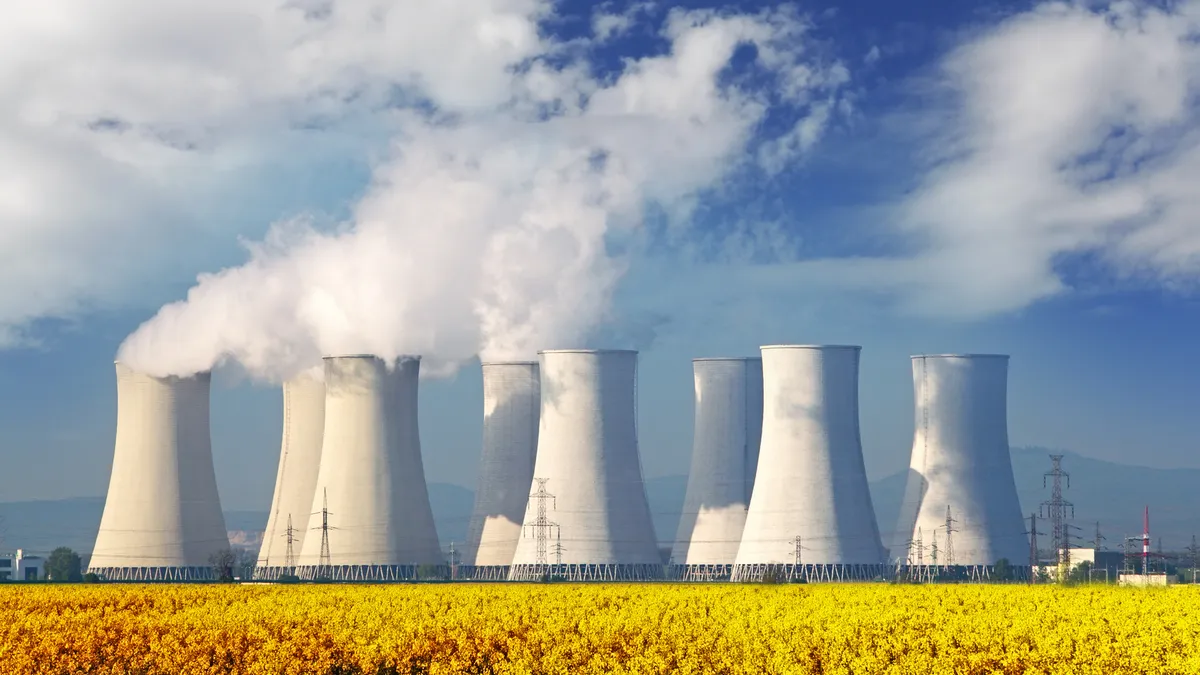Dive Brief:
- An official from the Nuclear Energy Institute (NEI) said last week that 15 to 20 nuclear plants "at risk" of an early shutdown due to market challenges, a sign their reliable carbon-free generation is not being properly compensated.
- Platts reported last week on the U.S. Department of Energy's nuclear summit, held last week and focusing on the economics of the plants, where NEI President and CEO Marvin Fertel called the sector's market struggles a "bad systemic problem."
- Secretary of Energy Ernest Moniz appeared to take a similar stance, saying "the importance of incentivizing continued operation is very clear," but added, "the solutions are less clear."
Dive Insight:
There appears to be a growing recognition that wholesale markets are not properly valuing nuclear generation. Though renewables are growing, nuclear's carbon-free generation still makes up about 20% of the United States supply. But while the plants may be necessary to meeting environmental goals, they are having a difficult time competing.
The federal government is studying the problem, Moniz said last week. The DOE's Quadrennial Energy Review will look at how nuclear plants might be compensated, adding that the problem will be "at the heart of the analysis work going on right now in developing this QER."
"This question of valuation [of nuclear generation] is one that is absolutely central. It's one that we're certainly paying attention to," Moniz said, according to Platts.
NEI's Fertel, who spoke after Moniz, sounded skeptical. "A report on it doesn't do anything unless the RTOs [regional transmission organizations] and FERC [the Federal Energy Regulatory Commission] do something with it. So you need to get it to them, they need to do something about it, and they need to do it sooner rather than later," he said.
Fertel sounded the alarm for about 15 to 20 plants he said are at risk of early closure due to market struggles. Among those most at-risk would be smaller plants with a single unit.
Those comments would seem to mirror Omaha Public Power District's proposal earlier this month to shutter its Fort Calhoun Station, after a review of plant economics and markets conditions showed the plant is "not financially sustainable." At 478 MW, it is the smallest nuclear plant in the United States.
OPPD said reliability would remain strong even without Fort Calhoun, and closing it will allow the utility to keep rates below regional averages. OPPD President and CEO Tim Burke acknowledged the decision was a difficult one, but said that when factoring in market conditions and expenses related to the Clean Power Plan, shutting down the plant made the most sense.
Last month, a report from Moody's Investor Services found consistently low natural gas prices have "devastated" the merchant power sector, threatening widespread closures of coal and nuclear units.















